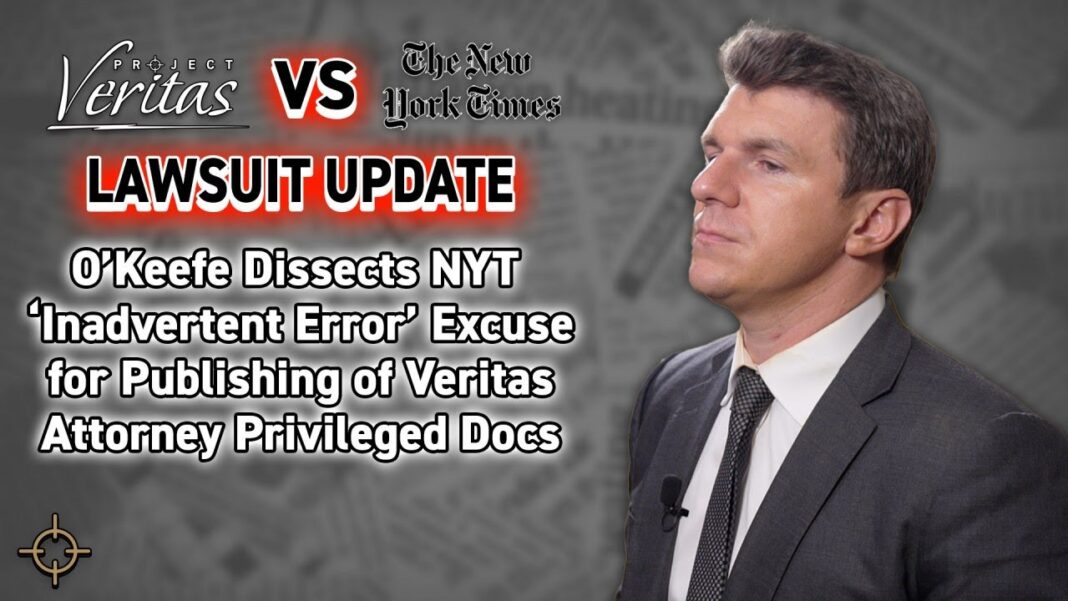
Pharma giant says no medical difference between the two; others point to major legal distinctions affecting vaccine mandates
Pfizer’s vaccine against COVID-19 has been fully approved by the Food and Drug Administration, yet the pharmaceutical giant is still providing distributors across the country with an earlier version of the vaccine that predates FDA’s full approval.
The Pfizer-BioNTech vaccine allowed under federal Emergency Use Authorization (EUA) in December 2020 and the Comirnaty vaccine approved by the FDA in August are identical, according to Pfizer and several experts.
However, the two vaccines are legally distinct, raising questions over the legality of vaccine mandates.
The EUA-authorized vaccine is being distributed and administered widely in Ohio, Virginia, and Pennsylvania, among other states. But while the product hasn’t received FDA approval, Pfizer says it’s made using the same processes as Comirnaty and no different in terms of safety and effectiveness.
“In terms of its ingredients and how it is made, the FDA-approved vaccine is no different from the vaccine that has been administered, to date, to hundreds of millions around the world under the EUA,” a Pfizer spokesperson told Just the News. “The FDA-approved Comirnaty and the EUA-authorized Pfizer-BioNTech COVID-19 vaccine have the same formulation and, according to the FDA labeling, can be used interchangeably to provide the COVID-19 vaccination series.”
The FDA has similarly said both vaccines “can be used interchangeably without presenting any safety or effectiveness concerns.”
The Pfizer spokesperson said the EUA-authorized product “will still be shipped and usable until its expiry date, as long as authorized frozen storage conditions have been maintained.”
There are no ethical issues with Pfizer’s distribution plan, according to University of Virginia law professor Margaret Riley, who teaches health law, food and drug law, bioethics, and regulation of clinical research.
“Given that the vaccine formulations are identical, it would be unethical not to distribute existing vaccine so long as it has not expired or been thawed or diluted or the like,” Riley said, noting it mitigates waste to use the ones more likely to expire first.
Riley also said distributors, manufacturers, and health care providers receive the same liability protections for EUA-sanctioned and FDA-approved vaccines.
Despite there being no chemical or ethical differences between Comirnaty and Pfizer-BioNTech, however, the FDA acknowledges the two “are legally distinct.” The agency explained in a statement to the Ohio Star that statutory authorities governing EUAs and biologics license applications, which are necessary for official FDA approval, “provide different legal requirements.”
Those requirements, such as more paperwork for a full approval, mean the two products are labeled differently. Labeling differences, while important for the company, mean little in practice for those receiving the vaccine, explained Riley.
But legal differences between the EUA-sanctioned and FDA-approved vaccines have potentially significant implications for vaccine mandates.
The Department of Defense, for example, mandates that service members become fully vaccinated against COVID-19 but directs that only FDA-approved vaccines be used for mandatory vaccination. (Service members may also volunteer to receive a EUA vaccination to meet the requirement.)
And in Ohio, a recently signed law states that “a public school or state institution of higher education shall not … require an individual to receive a vaccine for which the [FDA] has not granted full approval.”
Such measures have led to debates over the precise nature of the legal differences between the two types of vaccines — and whether FDA approval should legally be a limitation for vaccine mandates.
R. Davis Younts, an attorney based in Lemoyne, Penn., who represents dozens of clients resisting vaccine mandates, said the government can’t compel people to take vaccines that have only been authorized under EUA.
“Government agencies do not have the legal authority to mandate any of the EUA vaccines,” Younts told Just the News. He explained how Section 564 of the Federal Food, Drug, and Cosmetic Act requires that vaccine recipients must be informed of “the option to accept or refuse” the product.
Younts, focusing on military personnel, added that, in order to make an EUA drug mandatory, the president must issue a waiver under a certain federal statute. That statute states, “Administration of a product authorized for emergency use under section 564 … to members of the armed forces” requires informed consent absent a determination by the president that “complying with such requirement is not in the interests of national security.”
The FDA’s letter of authorization to Pfizer says the EUA is being authorized under section 564. Meanwhile, President Biden has yet to issue the waiver described by Younts.
“Thus, it is clear under federal law that no military member may be forced to take the Pfizer EUA vaccine, or be punished (if there is no exemption pending or granted), until at least the FDA licensed vaccine is available in accordance with federal law,” Younts concluded.
The FDA noted last week that there’s not enough of Comirnaty “available for distribution to this population in its entirety.”
Many medical and legal experts agree with Younts that the government can’t require Americans to get vaccinated, but not all of them think FDA approval is the main issue.
“I think the lack of [FDA] approval has some impact at the margin,” Jeffrey Singer, a fellow at the Cato Institute and the American College of Surgeons, told the Tennessee Star. “The main problem is that the federal government lacks the constitutional authority to mandate vaccination.”
The issue of COVID-19 vaccines has been hotly contested beyond whether to mandate them. Federal and state health officials said vaccines and boosters can keep most patients from getting the most serious cases of COVID-19 leading to hospitalization and death, while acknowledging the vaccine protections wane over time and do allow for breakthrough infections in many Americans.
Federal officials also acknowledge that the vaccines have generated a larger than usual number of reports of adverse reactions, including suspected deaths and some heart inflammation, and that concerns have grown about the Johnson & Johnson vaccine and its ties to blood clotting.
However, federal officials say those concerns aside, they believe serious vaccine reactions are still rare and in most cases protections provided by vaccines outweigh the risks.







